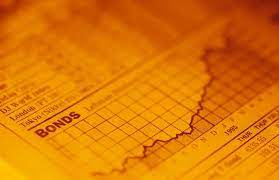Learn: In What Ways Are Corporate Bonds Used?
Triston Martin
Jan 17, 2024
Introduction
In what ways are corporate bonds used? Bonds can be better understood if comparisons to stocks are made. A shareholder gains the right to a portion of any dividends declared and paid out by the corporation by purchasing common stock. You do not become a shareholder when you buy bonds to invest in a company. All you will receive from the bond is the interest and principal, regardless of how well the company does or how much its stock price increases. The corporation is obligated by law to make regular principal and interest payments despite its financial difficulties. The corporation is not obligated to pay any dividends. In bankruptcy, bondholders have a greater claim on a company's assets than shareholders.
What Are The Basic Types Of Corporate Bonds?
Depending on their credit ratings, bonds can be categorized as "investment grade" or "non-investment grade." Bonds with investment-grade ratings are generally expected to be paid interest and principal on schedule more frequently than bonds with lower ratings. High-yield bonds, also called speculative bonds, offer investors higher interest rates in exchange for the greater risk they represent compared to investment-grade bonds.
Another way that bonds differ is in the types of interest payments they give. Many bonds have fixed interest rates for the entire time they are outstanding. The interest rate and the interest payments are referred to as coupon and coupon payments, respectively. A bond with a fixed coupon rate will never alter its coupon payments due to changes in the market interest rate. Interest rates on floating-rate bonds fluctuate regularly (often every six months). Changes influence these bonds' interest payments in the interest rate markets. A benchmark bond index or comparable measure is used for floating interest rates. A typical formula for determining the floating rate adds 1% to the interest rate on a certain category of Treasury bonds.
Bonds issued by corporations Senior secured debt refers to the highest level of debt in this context. The issuer of a secured corporate bond may sell the underlying collateral and utilize the revenues to pay bondholders in the event of default before or at maturity. A single manufacturing plant or piece of equipment may serve as the security for a bond.
Less important securities: The next in line for repayment is unsecured debt, such as unsecured bonds. Unsecured bonds, known as debentures, are only guaranteed by the good faith and promise of the issuer. A sort of unsecured loan known as subordinated debt is paid back following the repayment of senior debt. The more junior bonds issued by a company are frequently referred to as subordinated debt since a holder of junior bonds has a weaker claim to repayment of the principal of such bonds than a holder of senior bonds.
How Are Corporate Bonds Evaluated?
The risk of corporate bonds varies greatly. Their value largely depends on the issuing company's ability to maintain its finances (the soundness of its finances and ability to pay its debts). Its credit rating is a representation of this, much like a person's is. Moody's, Fitch, and Standard & Poor's are the most well-known credit rating companies. Even though each of these independent businesses uses letter grades somewhat differently, they all use them in their rating systems. The highest ratings go to the companies with the lowest credit risks. With a B rating, credit risks are viewed as moderate. A rating of C or lower indicates a high credit risk. D-rated companies are in default and have probably declared bankruptcy.
Risk
Investment-grade rated companies are quite unlikely to default on their obligations. Investors should generally feel safe purchasing corporate bonds. These will appeal to investors looking for a larger return than Treasury notes. These corporate bonds nevertheless carry a reasonably low level of risk. These are rated at least a BBB- by all three major rating agencies: Standard & Poor's, Fitch Ratings, and Moody's. High-yield bonds, sometimes known as garbage bonds, offer the best returns. However, they pose the most risk. A rating that reads "not investment grade" should worry you a lot. We may safely claim that they are all pure speculation. These debt instruments have a B- or below credit rating.

Conclusion
Bond issuance is common for firms looking to draw investors and raise capital. While lending money to a company in exchange for recurring interest payments is similar to buying a corporate bond, corporate bonds can also be traded on the secondary market. Corporate bonds are typically more expensive than U.S. government bonds because they are perceived as somewhat riskier. The highest rated (and safest, lowest yielding) bonds are "triple-A" bonds, and "junk" bonds are the least creditworthy.







